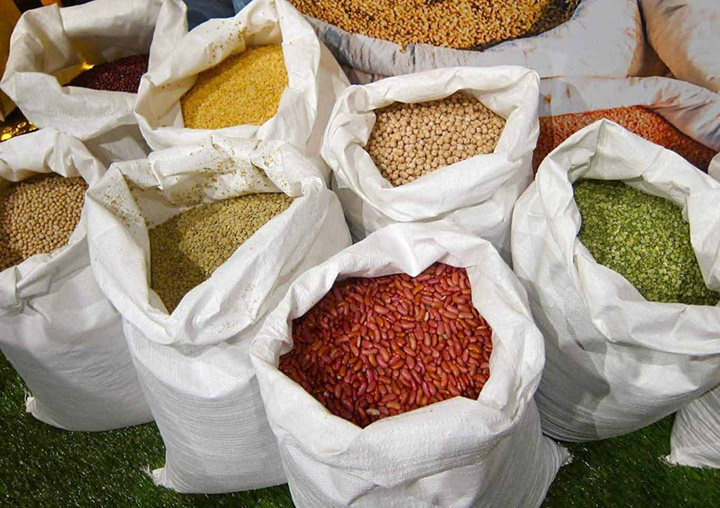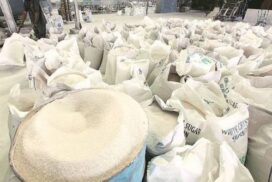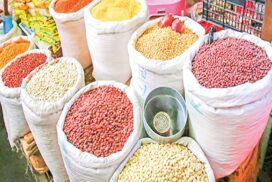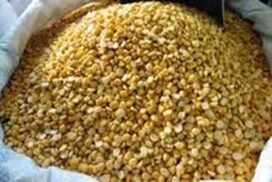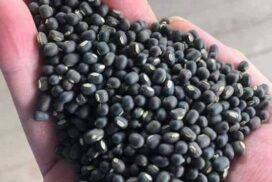The prices of black grams and pigeon peas are moving onwards after the Myanmar New Year holidays in the domestic pulses market.
The prices stood at K2,400,000 per tonne of pigeon pea and K2,070,000 per tonne of black grams on 8 April. The prices were K2,395,000 per tonne of pigeon pea and K2,067,000 per tonne of black grams on 18 April.
The prices are expected to stay on the rise. Foreign demand pushed up the prices. They are currently delivered to India and China.
India forecast Myanmar’s black gram output is estimated at 650,000 tonnes. This year, the yield rate is likely to fall by half owing to a reduction in sowing acres and threats of invasive pests, the growers said.
Afterwards, the growers can generate a profit only if the black gram is priced at K60,000-70,000 per basket amid the high cost of agricultural inputs.
The price of black gram (urad in India) increased slightly in India as well. The price of black gram (urad in India) is expected to be around Rs 8,500-9,000 per quintal in Chennai until August, Agri World Mumbai forecast.
Myanmar earned over US$1.4 billion from over 1.9 million tonnes of pulses in the current financial year 2022-2023, the Ministry of Commerce said.
Of them, black gram export earned $531.797 million from 649,940.23 kilogrammes, while pigeon pea export pocked $187.393 million from 239,537.733 kilos, the Ministry of Commerce’s statistics showed.
Myanmar primarily exports black gram, green gram and pigeon peas. Of them, black gram and pigeon peas are mainly sent to India while green grams are shipped to China and Europe.
India has growing demand and consumption requirements for black grams and pigeon peas. According to a Memorandum of Understanding between Myanmar and India signed on 18 June 2022, India will import 250,000 tonnes of black gram and 100,000 tonnes of pigeon peas (tur) from Myanmar for five consecutive years from 2021-2022 financial year to 2025-2026 FY. This G-to-G pact will not affect the pulses’ annual quota set by India. Myanmar’s exporters are also entitled to deliver the pulses to India under that annual quota.
Myanmar yearly produces approximately 400,000 tonnes of black grams and about 50,000 tonnes of pigeon peas. Myanmar is the top producer of the black gram that is primarily demanded by India, while pigeon peas, green grams and chickpeas are cultivated in Australia and African countries besides Myanmar. — NN/EM
Pulses’ prices on upward trajectory in post-Myanmar New Year holidays
- April 19, 2023
- 337
